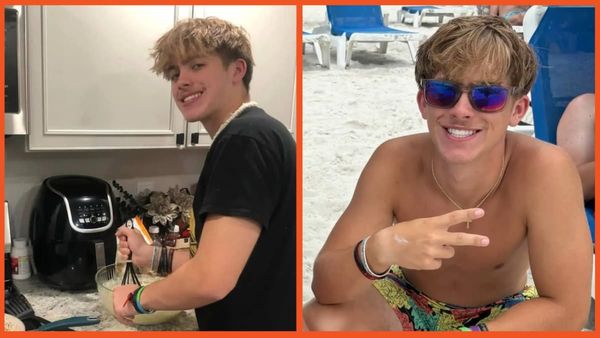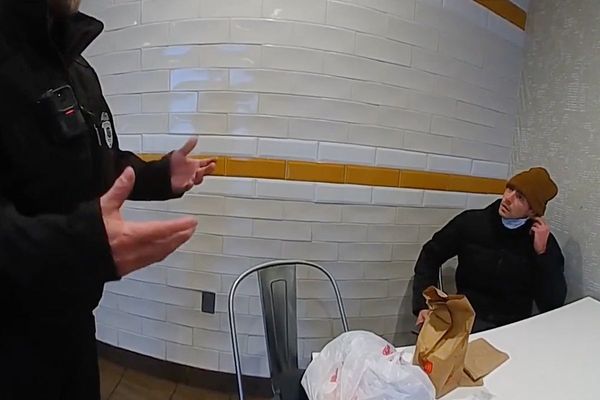Watching Prince Harry emoting to interviewer Tom Bradby for more than an hour and 40 minutes it was impossible not to feel sympathy.
Happy Valley was on BBC1 on Sunday evening while Unhappy Harry was on ITV, sitting in an agreeable room in his spacious home in California, speaking of his life’s mission to curb the British press, a crusade which he was convinced the whole world would share. But how?
It is easy to see why the Duke of Sussex has a down on British newspapers although he does not seem to extend it to all the other forms of media that permeate the news of the world, and neither does he distinguish between news reporting and columnists’ opinionating – which, as recently with Jeremy Clarkson, can be grossly offensive. Nor does he reflect that the crowds who flock to royal events – and will fill the streets outside Westminster Abbey and all along Whitehall and the Mall when his father is crowned in May – include many of the readers of those newspapers he so despises.
They are the ones who want to read the royal news and gossip; if the media did not provide it and feed their enthusiasm the institution would wither. As a self-confessed believer in the monarchy, Harry presumably does not want that.
All royals through history have had to show themselves to their subjects to prove they are still there. As Lord Salisbury, the future prime minister, wrote in the Saturday Review in 1871 when Queen Victoria was burying herself away a decade after Prince Albert’s death – and losing public support as a result: “Seclusion is one of the few luxuries in which royal personages may not indulge. Loyalty needs a life of almost unintermitted publicity to sustain it.” The crowd, it was said, “want the gilding for their money”. As Harry’s late grandmother used to say: “We have to be seen to be believed.”
It is understandable that Harry has been marked for life by what happened to his mother. Some of what the tabloid press did in the 1980s and 1990s, in an era of frenzied commercial competition was frankly deplorable.
But by and large, partly as a result of that experience, the British press has been more restrained in recent years. The paparazzi are still with us but their market these days is continental and American – many of the headlines shown in the recent Netflix documentary were from US supermarket tabloids and the photographs of massed ranks of photographers were taken from other, non-royal events on different occasions.
Harry was just wrong to tell Bradby that his mother’s death after a car crash in the Pont de l’Alma tunnel in 1997 was caused directly by the paparazzi. They were indeed following the Mercedes limousine in which Diana, Princess of Wales and her companion Dodi Fayed were travelling at speed, but they were on motor scooters some way behind. The main reason for her death was that the chauffeur Henri Paul was high on drink and drugs, not having been expecting to work that day until his employer, Dodi’s father Mohamed Al Fayed, ordered him to take the couple across Paris in a powerful car which he had no experience of driving. Diana might have survived if she had worn her seat belt.
I was the Guardian’s European affairs editor in Brussels at the time and was ordered to Paris on the first train that morning to help the paper’s coverage. As I took a taxi from the Gare du Nord to the French capital’s Guardian office, the driver told me: “Only an idiot drives into that tunnel at that speed. It has a bend and a difficult camber. He must have been mad.” Five hours after the accident, a Parisian cabbie knew what a decade later it would take eight months for a British inquest (which I also covered) to decide. If Harry’s remarks in the ITV interview set a fresh wave of conspiracy theories going he will not have done a service to his mother’s memory.
Does Buckingham Palace leak damaging stories? Well, there was a brief period 20 years ago when Harry’s beloved father allowed his adviser Mark Bolland aggressively to campaign for Camilla’s rehabilitation, but generally it’s hard to get any but the most anodyne information out of palace sources. You can’t just ring up King Charles or Prince William for a candid chat, on or off the record.
The tabloids do indeed cover the royals intensely and, actually, they mostly get their reporting right. They were the ones who first noticed the rift between Charles and Diana and indeed between the two brothers after Harry’s wedding to Meghan Markle – both of which were important stories and furthermore true.
Would Harry rather return to the deference of the press in the 1930s, when it failed to report Edward VIII’s burgeoning love affair with Wallis Simpson until it was all but a fait accompli? The lessons of that experience are that deference does not work when there’s a genuine crisis brewing and even then the story was being widely reported across the world while the British remained in ignorance.
Harry seems unable to distinguish these nuances as he backs into the limelight. He appears to want public apologies and reconciliation while going about obtaining it in the way it is least likely to happen. Presumably until then he will be able to play victim. But how many more times will he be able to do it?
Stephen Bates covered the royals for the Guardian for 12 years. His books include Royalty Inc: Britain’s Best-Known Brand and The Shortest History of the Crown







